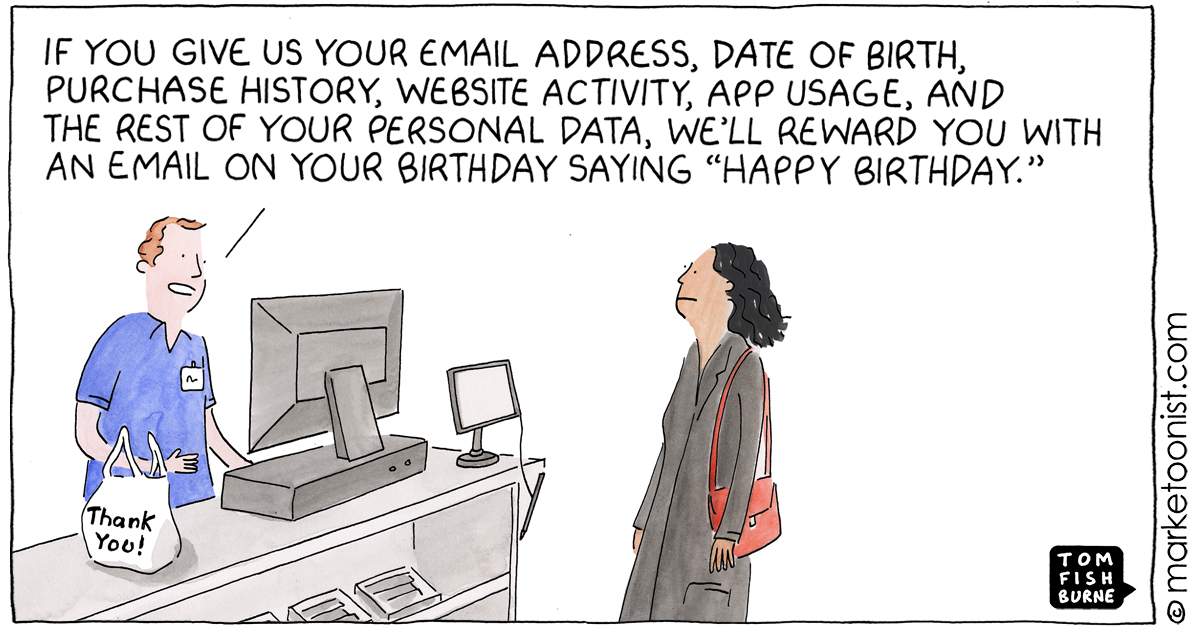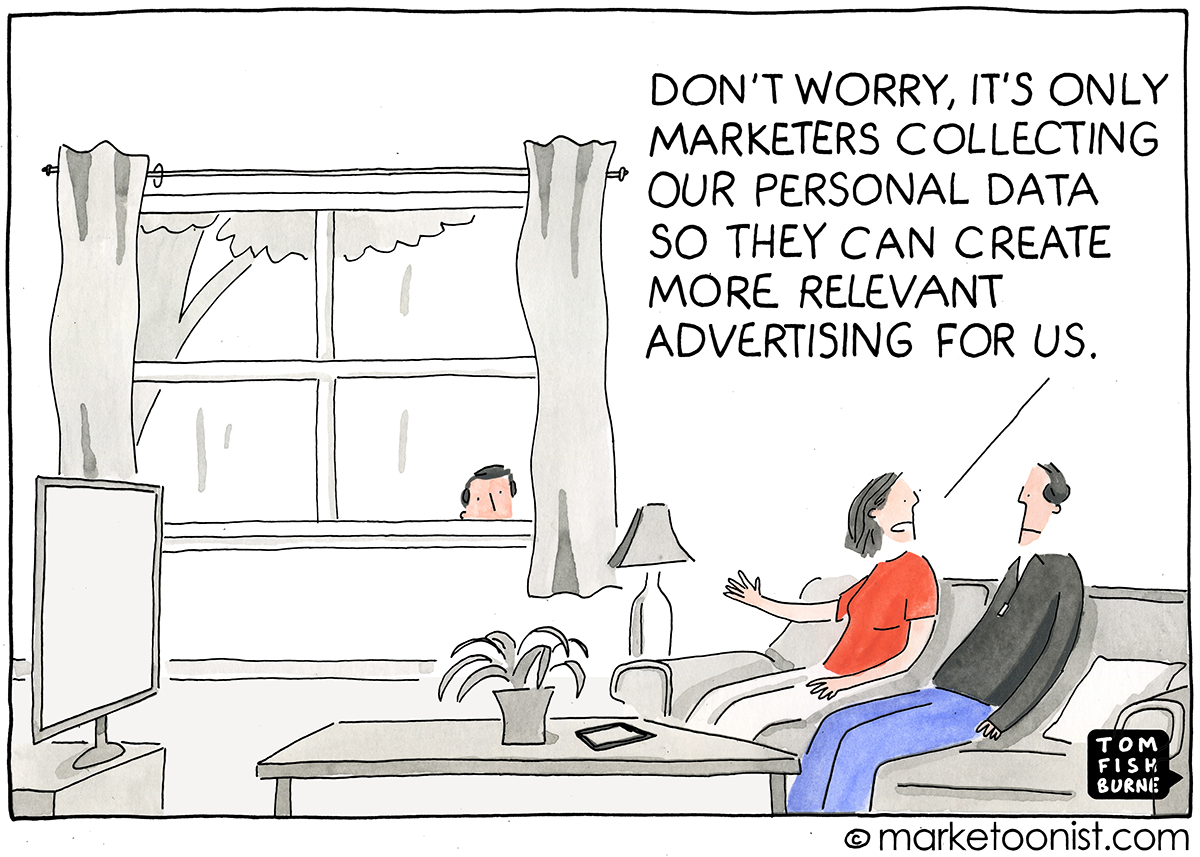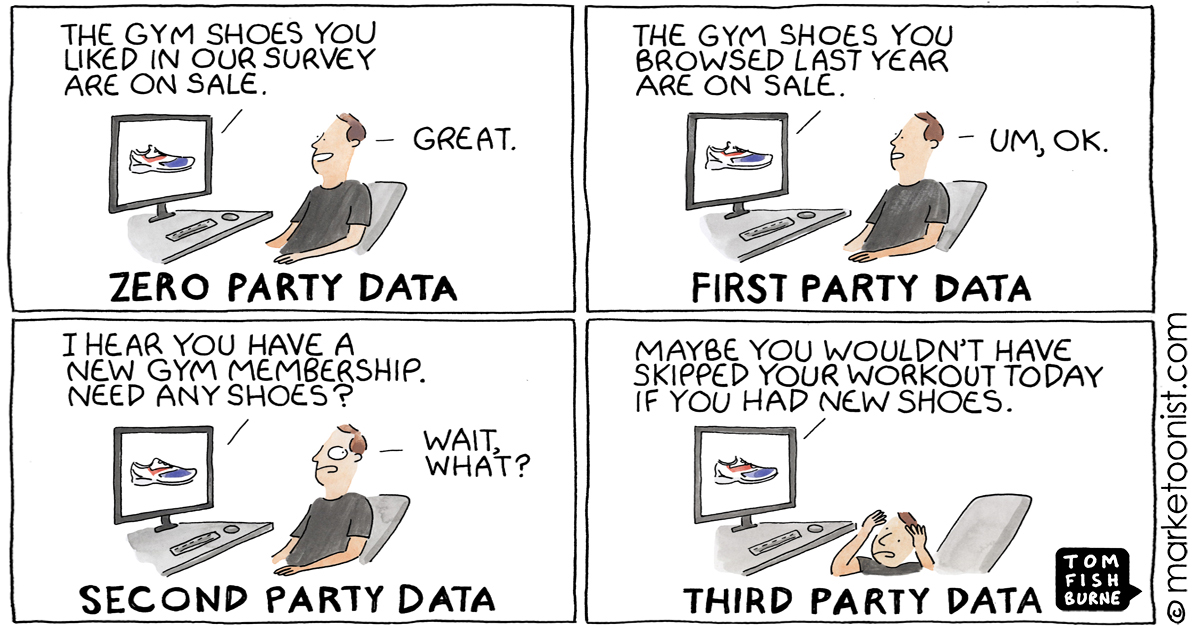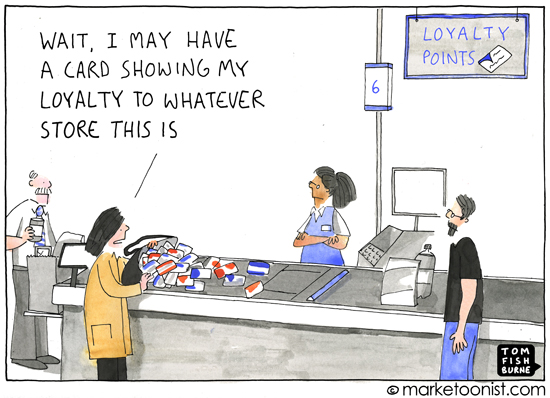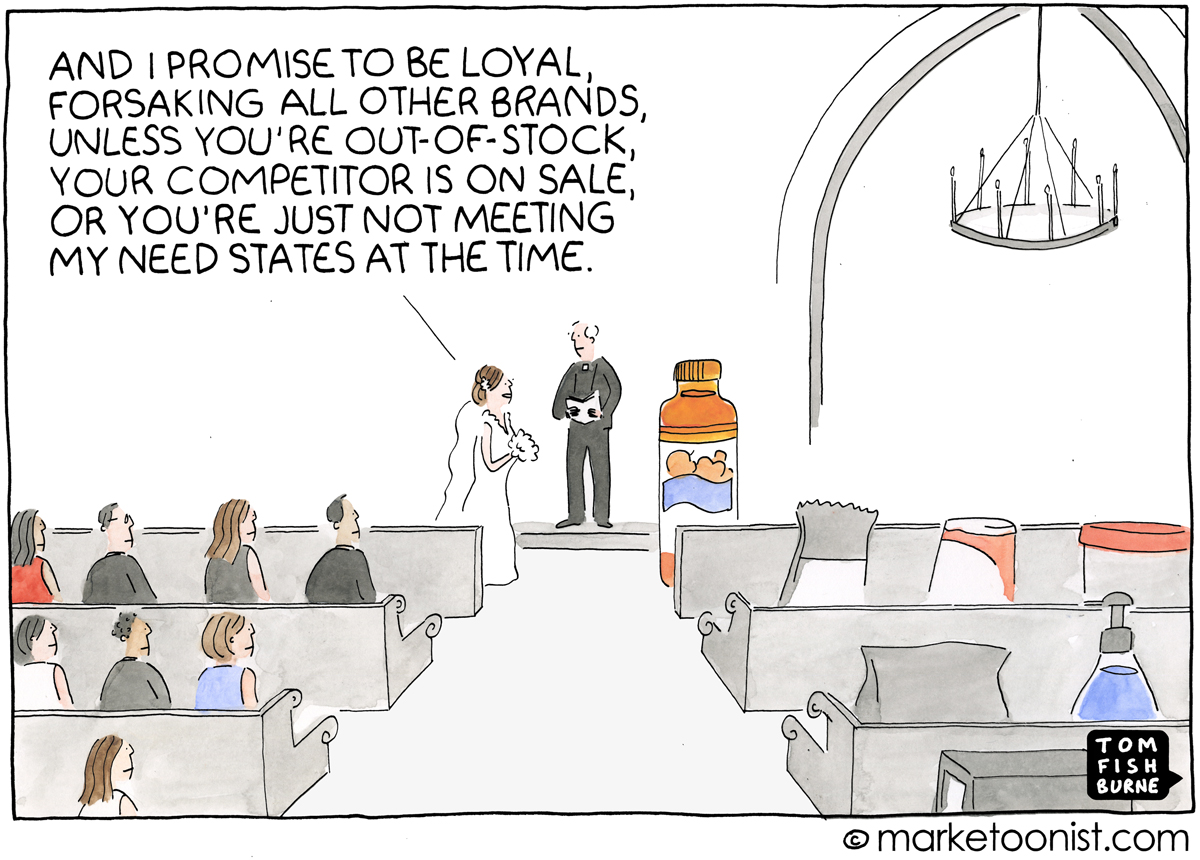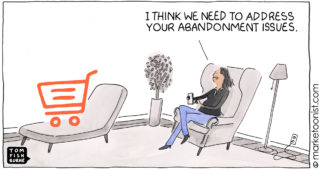“Loyalty programs need to be treated as a trade-off, meaning they need to provide something of value to the customer and in return customers will provide their personal information along with the permission to track their shopping behavior and actions providing that Big Data.”
This is a good reminder from Andy Wood, MD at GI Insight. With the death of third-party cookies and the privacy changes of iOS 14, brands are scrambling to find other ways to collect personal data.
Loyalty programs are at the top of the list. Brands of all shapes and sizes, from tiny consumer products to restaurants to large retailers, are creating a new era of loyalty programs, partly driven by a need to collect first-party data.
But I think marketing teams sometimes forget the importance of that “trade-off”. There’s a value exchange — consumers give up personal information and brands give something in return. Consumers need to feel that the trade-off is worth it.
GI Insight research found that 64% of consumers were happy for a company to collect info on shopping behaviors and personal preferences in return for “relevant and timely offers,” but 76% were very reluctant to hand over data without a “proper loyalty program in place.”
People are willing to share personal information even if the value doesn’t benefit themselves personally, but if they see value another way. The most ambitious first-party data collection effort I’ve heard about came from Seed Health, a probiotic supplement brand.
Seed somehow convinced their customers to upload photos of their stool to help create a “microbial health database” (using A.I. and crowd-sourced photography).
As Seed co-founder, Ara Katz, put it:
“We don’t always think about stool as like a daily data — I’m putting air quotes around ‘dump’ — but really, as a direct output of their gut health.”
Considering how difficult it can be for a brand just to convince people to take a survey, Seed Health is setting the bar for first-party data collection pretty high. But they’re getting a response even for this big an ask because their customers feel a part of their mission. Katz said they found customers are more likely to share feedback when questions are framed within the context of research and development.
Seed is now expanding the data collection into a more robust loyalty program as “a way for people to contribute data points to our research.”
Here are a few related cartoons I’ve drawn over the years:
